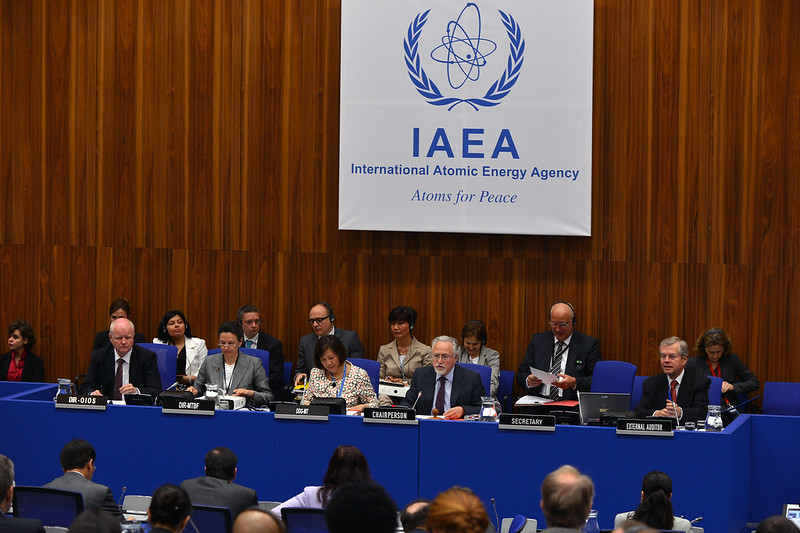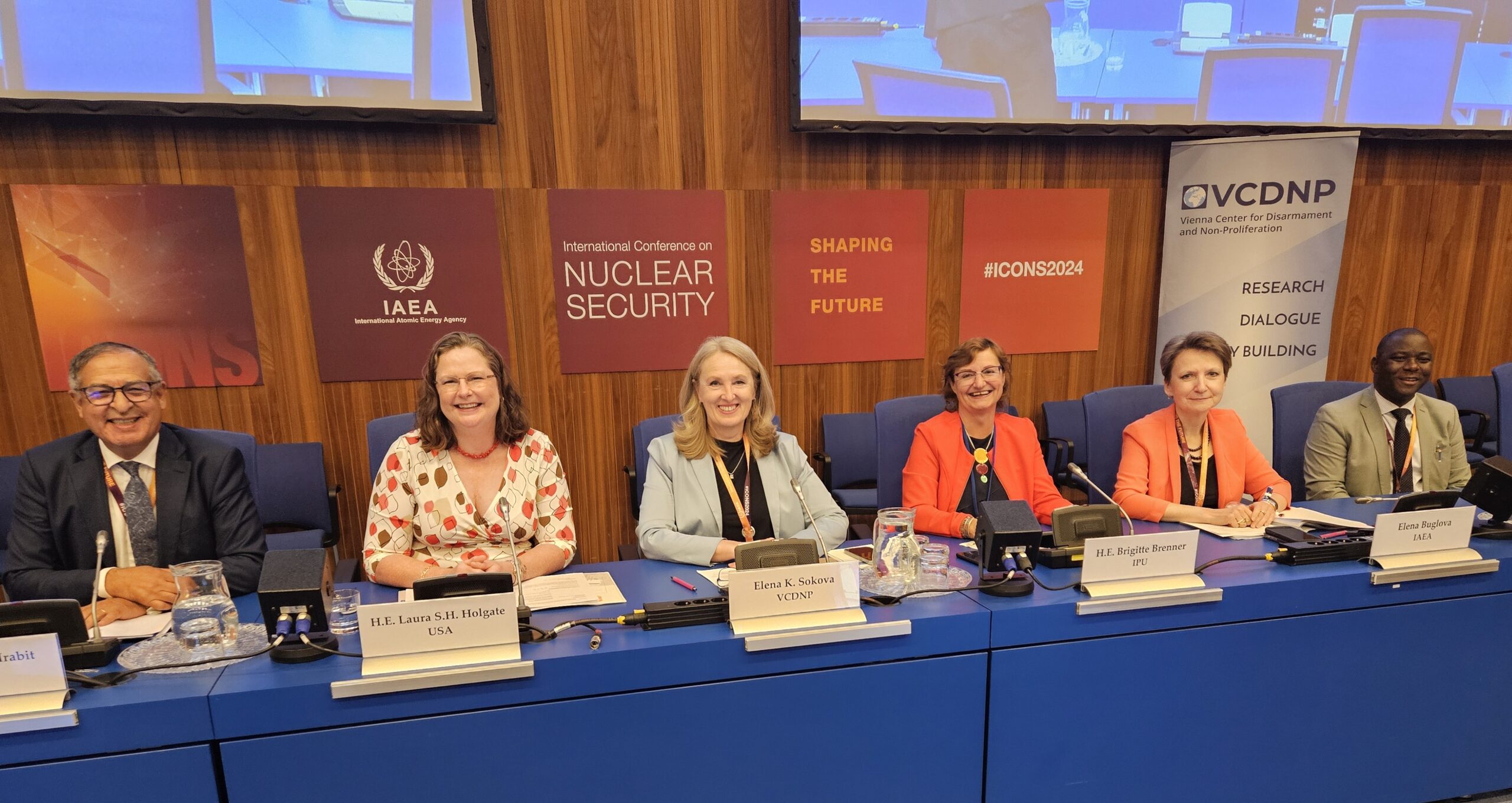
On 23 May 2024, the VCDNP held a side event at the International Atomic Energy Agency (IAEA) International Conference on Nuclear Security (ICONS), focused on engagement with parliamentarians and other high-level officials to advance nuclear security around the world. The side event built on lessons learned from a workshop, convened by the VCDNP and the Inter‑Parliamentary Union (IPU) in April 2024, which brought 15 Members of Parliament (MPs) and senior officials to Vienna to discuss the importance of adhering to international legal instruments related to nuclear security.
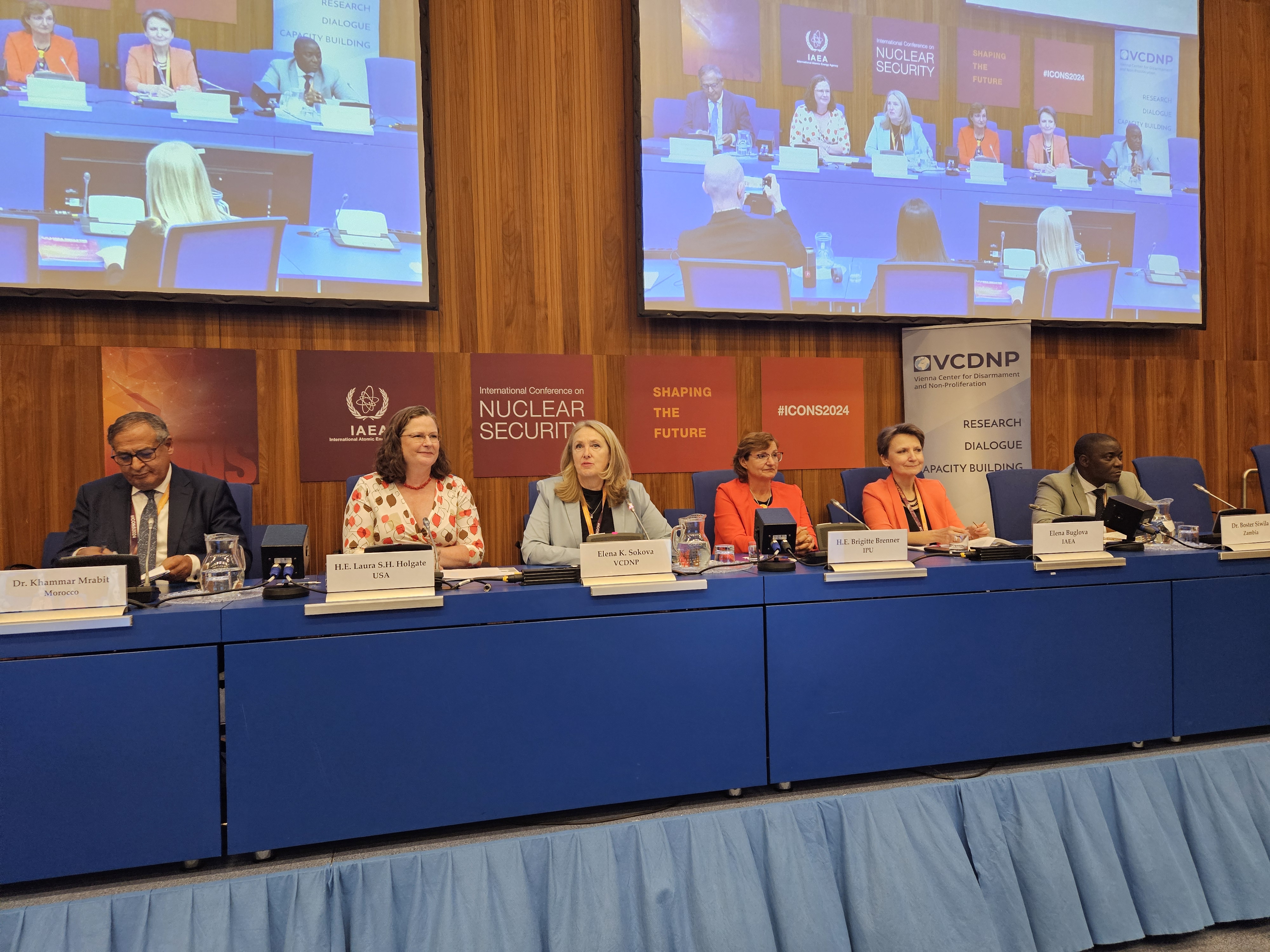
Moderated by VCDNP Executive Director Elena K. Sokova, the panel of speakers included:
H.E. Ambassador Brigitte Brenner reflected on the role of parliamentarians and the value of engaging them in nuclear-related topics. She observed that MPs are often overlooked in discussions related to nuclear security and other technical matters. As a result, many MPs are neither aware of the legal instruments for nuclear security nor their relevance to their work. Empowering MPs with knowledge on nuclear security issues and relevant legal instruments, including why these issues matter for their constituents’ concerns, is essential to achieving the universalisation of legal instruments for nuclear security. Ambassador Brenner stressed that MPs should use their oversight, budgetary, and ratification functions to push forward adherence to and robust implementation of legal instruments for nuclear security.
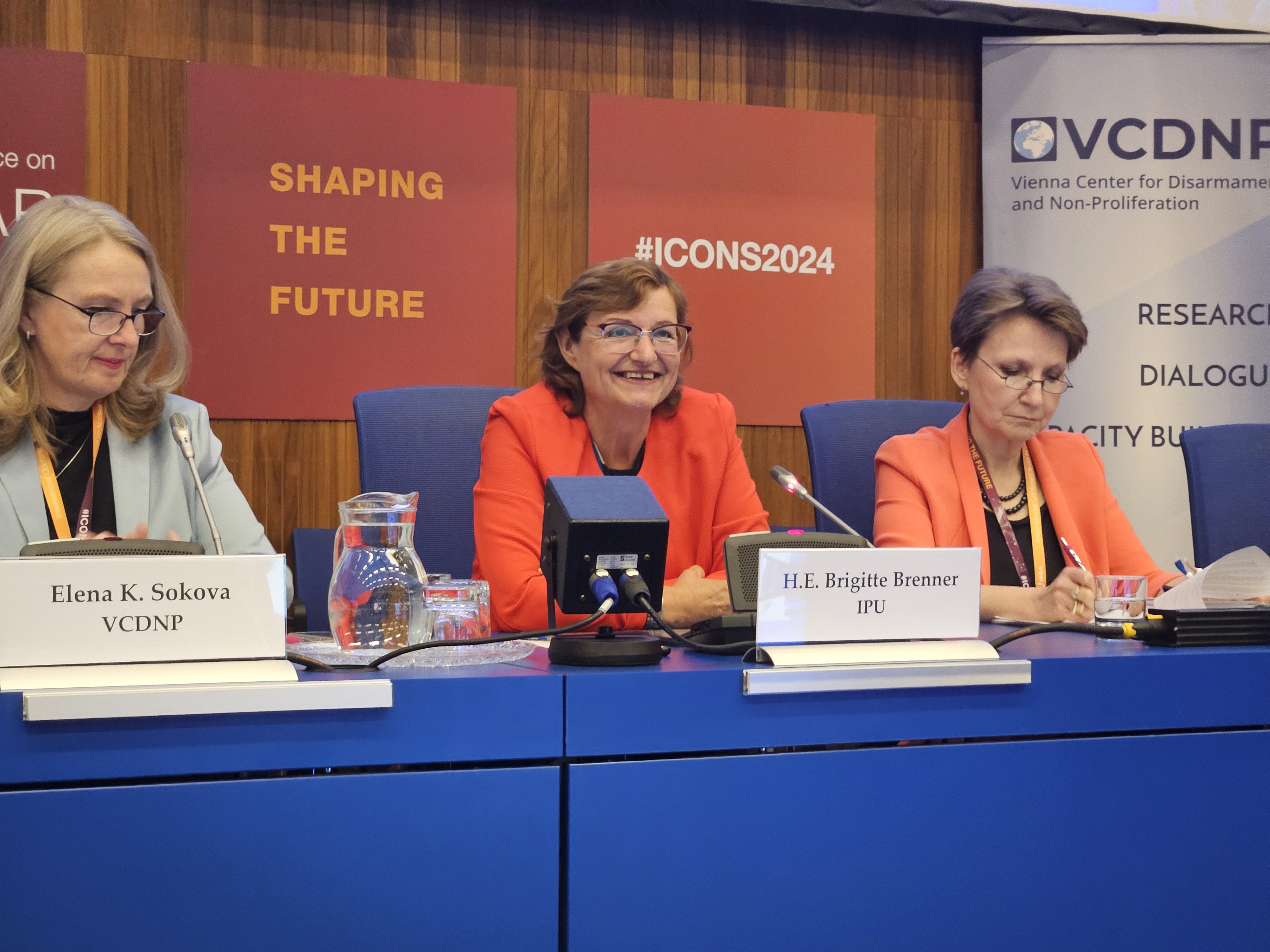
Dr. Boster D. Siwila shared his experience at the joint VCDNP and IPU workshop in April and explained which steps Zambia has taken since to further its work in adhering to the Amendment to the Convention on the Physical Protection of Nuclear Material (A/CPPNM). Dr. Siwila indicated that the April workshop provided a path for him, as the Zambian nuclear regulator, to engage with parliamentarians and understand the questions they posed, ranging from basic to more complex. The engagement with parliamentarians at the April workshop in Vienna has, in a few short weeks, already led to the production of a report and the initiation of necessary discussions in parliament as well as with other organisations to move Zambia closer to ratification of the A/CPPNM. He noted that Zambia may be able to fully adhere to the A/CPPNM within a year's time.
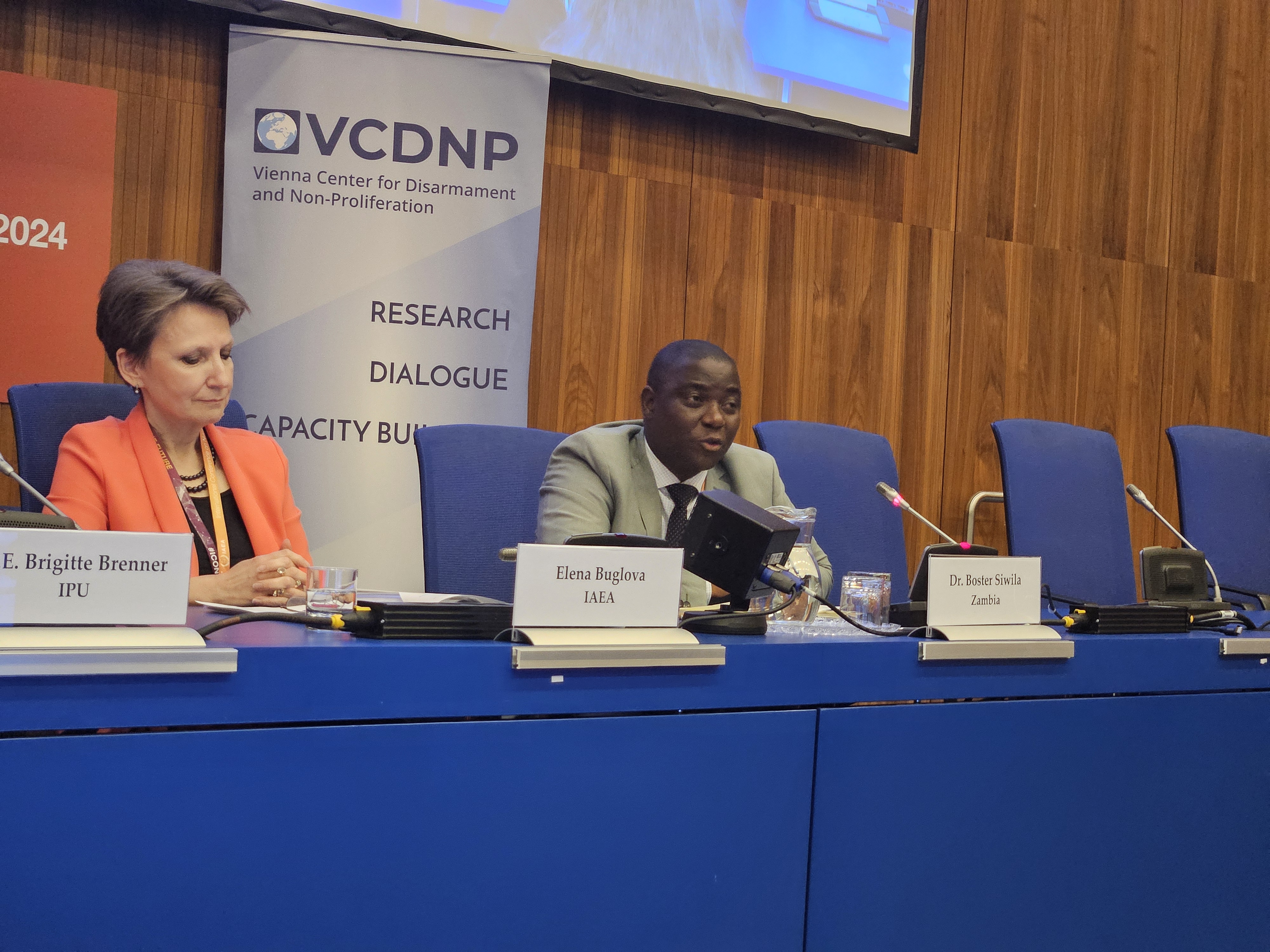
Dr. Elena Buglova highlighted that parliamentarians play an essential role in the adherence process, and as such, must have a seat at the table. She stressed that, when reaching out to countries, it is crucial to understand which ministry or ministries are responsible for nuclear matters. It is equally important to engage the regulatory authority and technical advisers, especially as the latter can help explain the importance of legal instruments for nuclear security to lawmakers and ensure implementation after ratification. Dr. Buglova highlighted that the IAEA offers assistance to states upon request. Technical and legal experts often participate in IAEA review and assistance missions to states to provide a comprehensive advice on the regulatory and legislative changes needed to adhere to legal instruments for nuclear security.
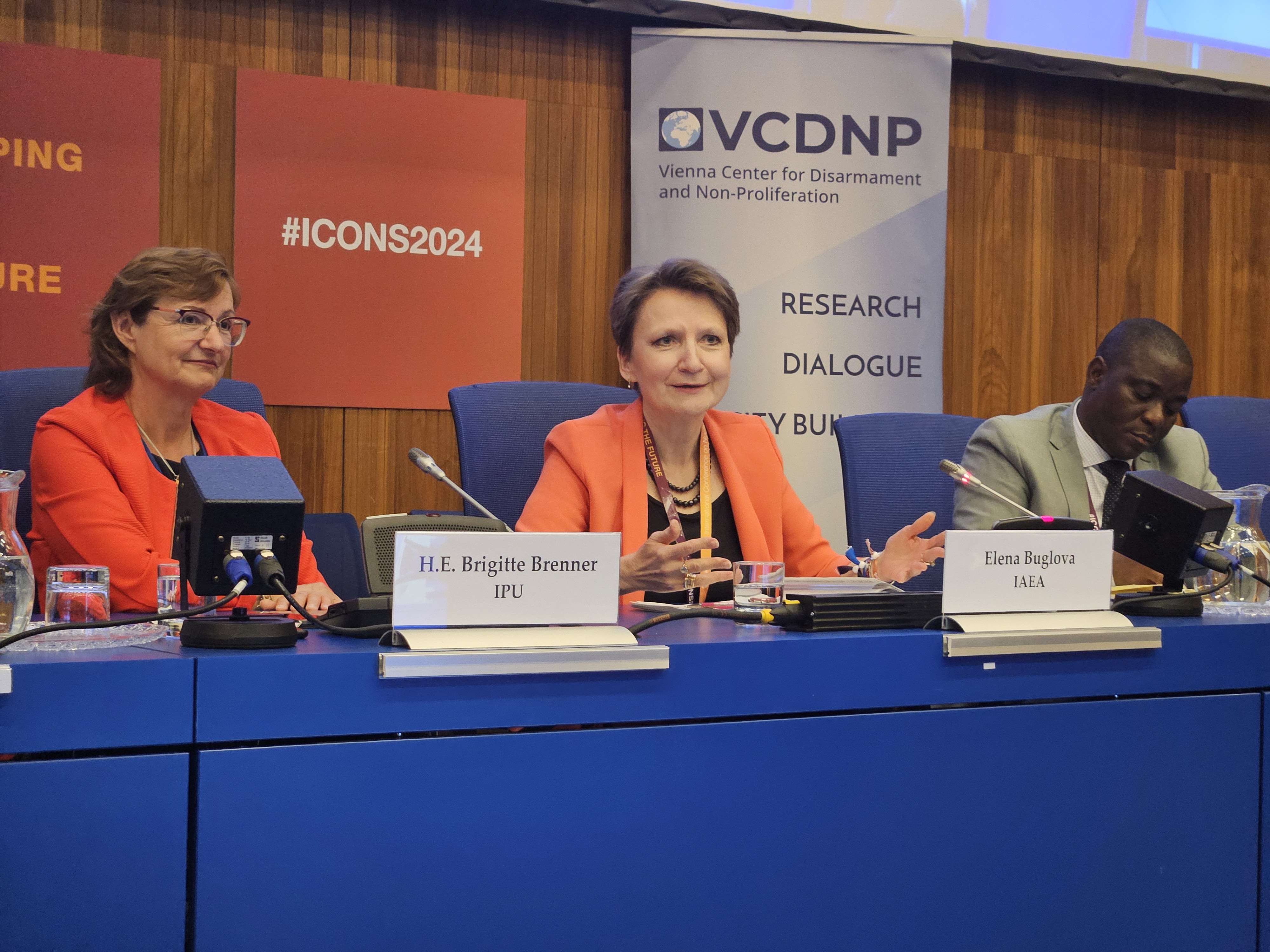
Dr. Khammar Mrabit emphasised the need for inclusive engagement. Nuclear security is a global issue that requires a global response, regardless of how much or how little nuclear material individual countries possess. While governments have the primary responsibility for nuclear security and safety, he noted that many individuals, including law enforcement, participate in its implementation. In his experience, parliamentarians have often been missing from the conversation on nuclear security and safety, which is problematic.
To better engage parliamentarians, it is essential to ensure that they are aware of the benefits of nuclear technology and the potential risks it can pose, and to highlight parliamentarians’ role in ensuring a safer world for all. He suggested holding discussions on the threats, risks, and benefits of nuclear technology with parliamentarians and to stress the nexus between nuclear technologies and sustainable development goals. Additionally, parliamentarians should be actively engaged in international conferences such as ICONS, as well as regional events, to sustain their engagement with nuclear security.
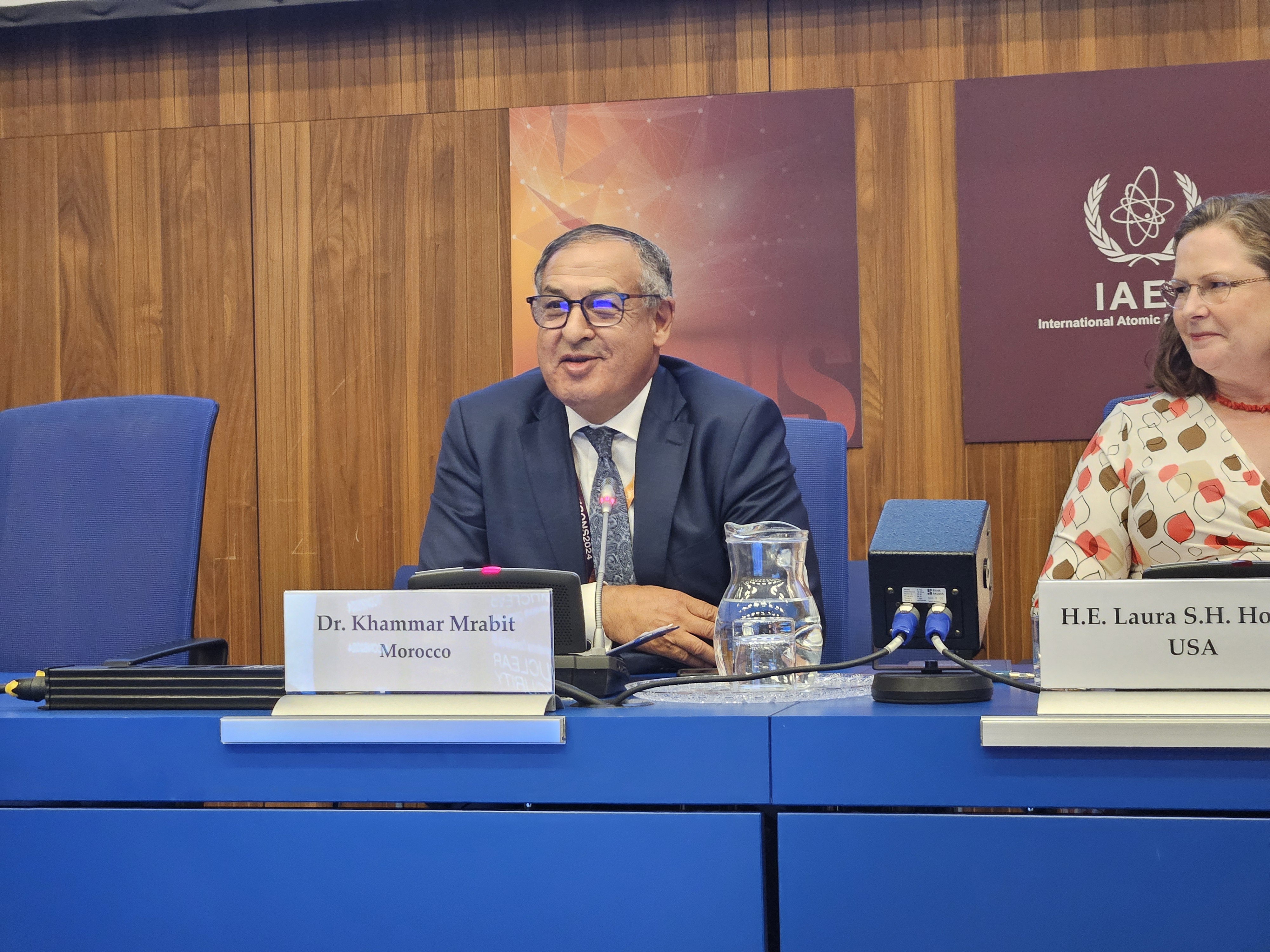
H.E. Ambassador Laura Holgate stressed the importance of senior-level engagement to achieve major milestones in nuclear security, as was seen during the Nuclear Security Summit process that provided collective momentum to push governments to look at creative solutions. Champions willing to engage with the executive and legislative branches of their governments are essential for pressing their countries to do more and to do better on nuclear security.
In having these conversations, it is crucial to dispel common misconceptions about nuclear security, for example that nuclear security impedes access to nuclear technologies and applications. Rather, it should be stressed that a sound nuclear security infrastructure ensures public confidence that nuclear applications can be used peacefully and will not be diverted for malicious intent. Ambassador Holgate concluded her remarks by encouraging states to consider pledges to strengthening nuclear security that they could make make, underlining that sustained dialogue on nuclear security beyond milestone events like ICONS is needed.
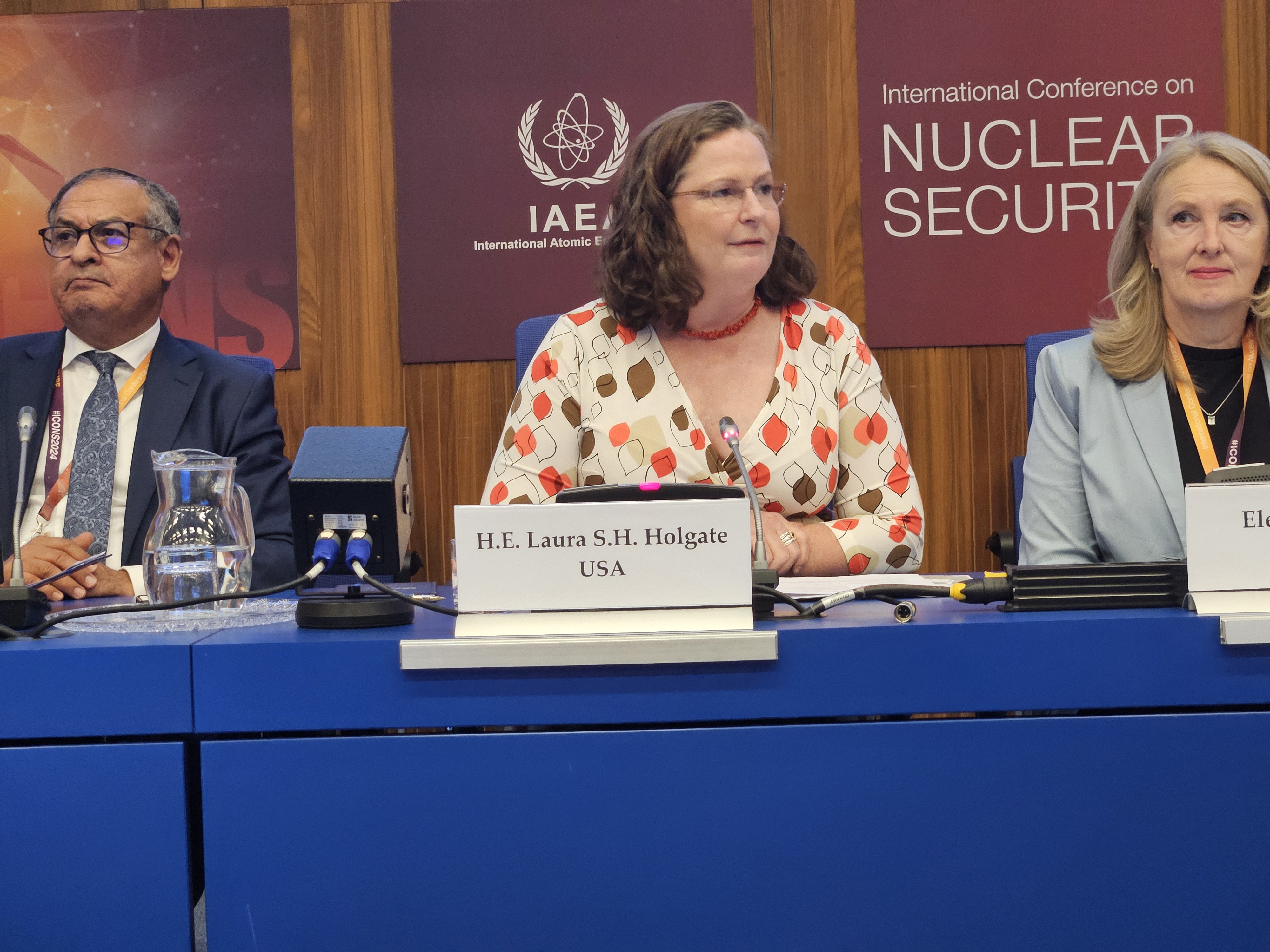
The event concluded with a question-and-answer session that stressed the importance of engaging all relevant stakeholders at the national, regional, and international level, to overcome challenges and strengthen nuclear security.
The VCDNP extends its gratitude to the US National Nuclear Security Administration for supporting this side event and the preceding workshop in April 2024.


